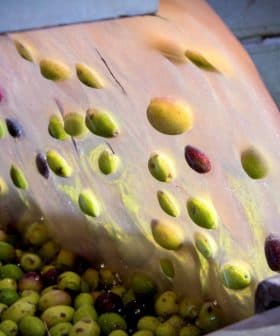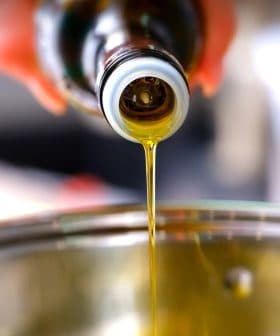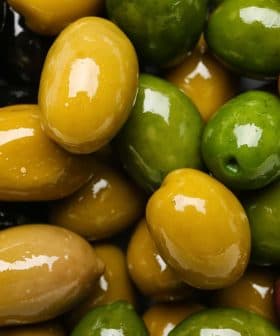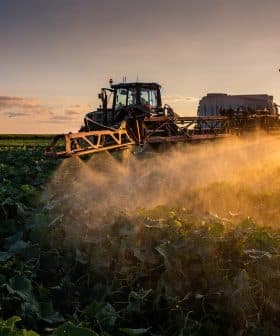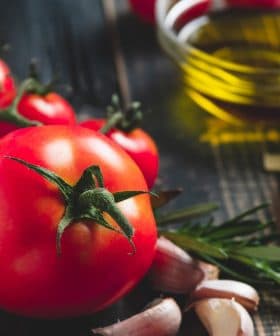Company Develops Microbeads From Olive Pomace
A British company's technology has attracted interest from farmers and producers looking for more value from fruit and vegetable waste.
A British company, Zembra, has replaced plastic microbeads with milled olive stones in a new environmentally friendly hand wash, utilizing ultrasound technology to repurpose olive waste for various products such as skincare, fuel briquettes, and soil conditioners. Zembra’s partnership with Aqua Bio Technology in Norway is focusing on developing sustainable cosmetics and skincare products made from olive waste, while also attracting interest from farmers and producers for extracting compounds from other fruit and vegetable waste using their innovative technology.
A British based company has replaced ocean destroying plastic microbeads with milled olive stones in an environmentally friendly hand wash made from ground olive kernels.
Zembra co-founder Steve Taylor told Olive Oil Times, “We manufacture olive-based microbeads to order, primarily for the cosmetics industry, and we have an agreement with a Norwegian partner to take these into the cosmetics market. We have seen increased interest as the removal of plastic-based beads gathers pace.”
We saw some opportunities using our joint network of contacts and technology in repurposing food waste.
Zembra was founded by Taylor, a biochemist, and Fabienne Pessayre, owner of a waste treatment company. “It was through a conversation with Fabienne Pessayre, owner of Hawthorn Technical Services and the other founder of Zembra, that we saw some opportunities using our joint network of contacts and technology in repurposing food waste,” Taylor noted.
Zembra’s technology and expertise are provided by a sister company Celbius, where Taylor developed ultrasound technology for use in the bioprocessing industries. Celbius’ technique utilizes ultrasound technology similar to that used in medical diagnostics, although a lower frequency KHz ultrasound is used. Taylor’s technology enables the use of water and other harmless liquids to replace toxic solvents.
Taylor told Olive Oil Times, “When this type of ultrasound is passed through a liquid the sound energy causes extreme turbulence in the liquid, and this can be put to good use. For example, it may be used to break plant material down to unlock desirable products such as flavors and fragrances, making them much easier to extract. In a typical extraction process, we will take slurry of the plant material and apply ultrasound to it, remove the plant material by filtering then recover the product from the liquor.”

Steve Taylor
Olive waste is sourced from Pessayre’s contacts in the Mediterranean region, Taylor noted. “We utilize the waste left behind after oil extraction. Much of this waste is simply burnt to produce heat for bakeries and the like and we wanted to find ways to create more value from this abundant material. This seemed like a logical starting point for developing the Zembra business, and while the UK does not grow olives, the supply of the waste from other countries is not an issue.”
Zembra’s Norwegian partner, Aqua Bio Technology (ABT), meanwhile, is developing sustainable, environmentally-friendly skincare products and cosmetics, made from olive waste extracted using Celbius’ ultrasound technology.
Zembra has also developed olive briquettes for fueling fires and wood burners. The briquettes are formed from the dry material left after all liquid has been extracted. Compounds extracted from olive waste have also shown potential as soil conditioners. Zembra has explored the possibility of producing a colorant from olive waste too.
Celbius’ technology has attracted interest from farmers and producers looking for more value by extracting compounds from fruit and vegetable waste. Professionals from fields including biofuel fermentation, waste remediation, and drug intermediate synthesis have also expressed interest.
Ultrasound technology makes extraction processes faster and higher yielding; resulting in the maximum possible extraction of valued compounds and the pulling of color from a wide range of fruit and vegetable waste.
Taylor didn’t disclose details of any new olive waste products in the pipeline saying, “We would like to keep new developments confidential for the moment until we have conducted sufficient testing.”


